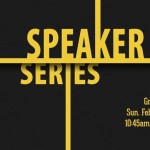We run our website the way we wished the whole internet worked: we provide high quality original content with no ads. We are funded solely by your direct support. Please consider supporting this project.

How the Holy Spirit Changes Us
The Bible is full of stories of people who experienced the presence of God. If we are to experience something similar today, we must, through the Spirit, cultivate the spiritual capacity of an inner life to see and hear spiritual things. Paul wrote:
Now the Lord is the Spirit, and where the Spirit of the Lord is, there is freedom. And all of us, with unveiled faces, seeing the glory of the Lord as though reflected in a mirror, are being transformed into the same image from one degree of glory to another, for this comes from the Lord, the Spirit. (2 Cor 3:17-18)
This Spirit-inspired “seeing” of Jesus changes our being. As we see his glory, we are transformed into his likeness “from one degree of glory to another.” This is, in essence, how the fruit of the Spirit is produced in our lives. When we cease from striving in our own effort and yield to the Holy Spirit, and when our faith ceases to be merely intellectual and rather becomes experiential and concrete, our lives begin to reflect Christ’s image.
It is what we see, not how hard we strive, that determines what we become.
This “seeing” is of a spiritual sort. Paul uses the Greek word katoptrizo, which literally means “to look at a reflection.” This reflection is in our minds. According to the teaching of Paul that follows the passage quoted above, believers have an ability to see in the mind. The “image of God,” the “face of Jesus Christ,” enlightens the mind of the believer. The mind of the believer can be “controlled by the Spirit” (Rom 8:6).
The place where the Spirit produces a reflection of “the glory of God in the face of Jesus Christ” (2 Cor 4:6) is in the regenerate mind of the believer. It is through this spiritual mental vision that we are “transformed by the renewing of [our] minds” (Rom 12:2) and set free from the pattern of this world.
While all believers have this capacity, however, we don’t necessarily use it. Though we are regenerate and have a new nature, we still struggle to “take every thought captive to obey Christ” (2 Cor 10:5). We yet have aspects of our minds veiled and thus experience ourselves as through we were not all God says we are in Christ. Our tendency to trust our own efforts to bring about transformation plays into this ongoing veiling of our minds.
We need to recover our sense of dependency on the Spirit of God rather than our own effort and recover the use of the imagination in our relationship with God to experience the transformation of which Paul spoke. We need to learn how to “fix our eyes on Jesus” and “set [our] minds on things that are above.”
We become what we imaginatively see. If all we imaginatively see are the vivid re-presentations that have been instilled in us by the pattern of this world, we will be conformed to the pattern of this world. But if we learn to imaginatively see “the glory of God in the face of Jesus Christ” (1 Cor 4:6), we will be transformed “from one degree of glory to another” (2 Cor 3:18).
—Adapted from Seeing Is Believing, pages 86-94.
Image by ramsesoriginal via Flickr
Category: General
Tags: Imagination, Imaginative Prayer, Seeing is Believing, The Holy Spirit
Related Reading

Who You Are Reflects the Kind of God You Worship
We always reflect the mental picture of God that we envision, for better or worse. If you have a fear-based picture of God, it will even affect the structure of your brain. You become the kind of person that you worship. If you have a threatening picture of God, you become threatening. If you have a…

If salvation depends on our free choice, how are we saved totally by grace?
Question: I’m an Arminian-turned-Calvinist, and the thing that turned me was the realization that if salvation hinges on whether individuals choose to be saved or not, as Arminians and Open Theists believe, then we can’t say salvation is 100% by grace. If we have to choose for or against God, then the credit for our…

Overcoming the Flesh
In Monday’s post, we talked about the nature of the flesh. Here let’s introduce the work of the Spirit in overcoming the flesh. The Holy Spirit’s goal in pointing us to Christ is to replace the destruction of deception (the flesh) with the wholeness of truth. By leading us into an experience of truth, the…

How to be Transformed
We are transformed as we gaze upon the beauty and glory of God. Paul put it this way, “And we all, who with unveiled faces contemplate the Lord’s glory, are being transformed into his image with ever-increasing glory, which comes from the Lord, who is the Spirit.” (2 Corinthians 3:18). This occurs as we cease…

Are the Charismatic Gifts for Today’s Church?
This week, we have offered a brief series on the Holy Spirit touching on what the Spirit does, how it changes us, and how the fruit of the Spirit is produced. Now we will look briefly at the gifts of the Holy Spirit, and more specifically the “charismatic” gifts. In the church today, Christians can be roughly divided into…

Does the Doctrine of the Trinity Matter?
Jesus reveals the greatest, most beautiful, and mysterious aspect of God when he, despite being himself God Incarnate, relates to God as his “Father” and refers to God as “the Holy Spirit.” There is, of course, only one God (1 Cor 8:6). Yet Jesus reveals that God somehow exists as Father, Son and Holy Spirit.…
